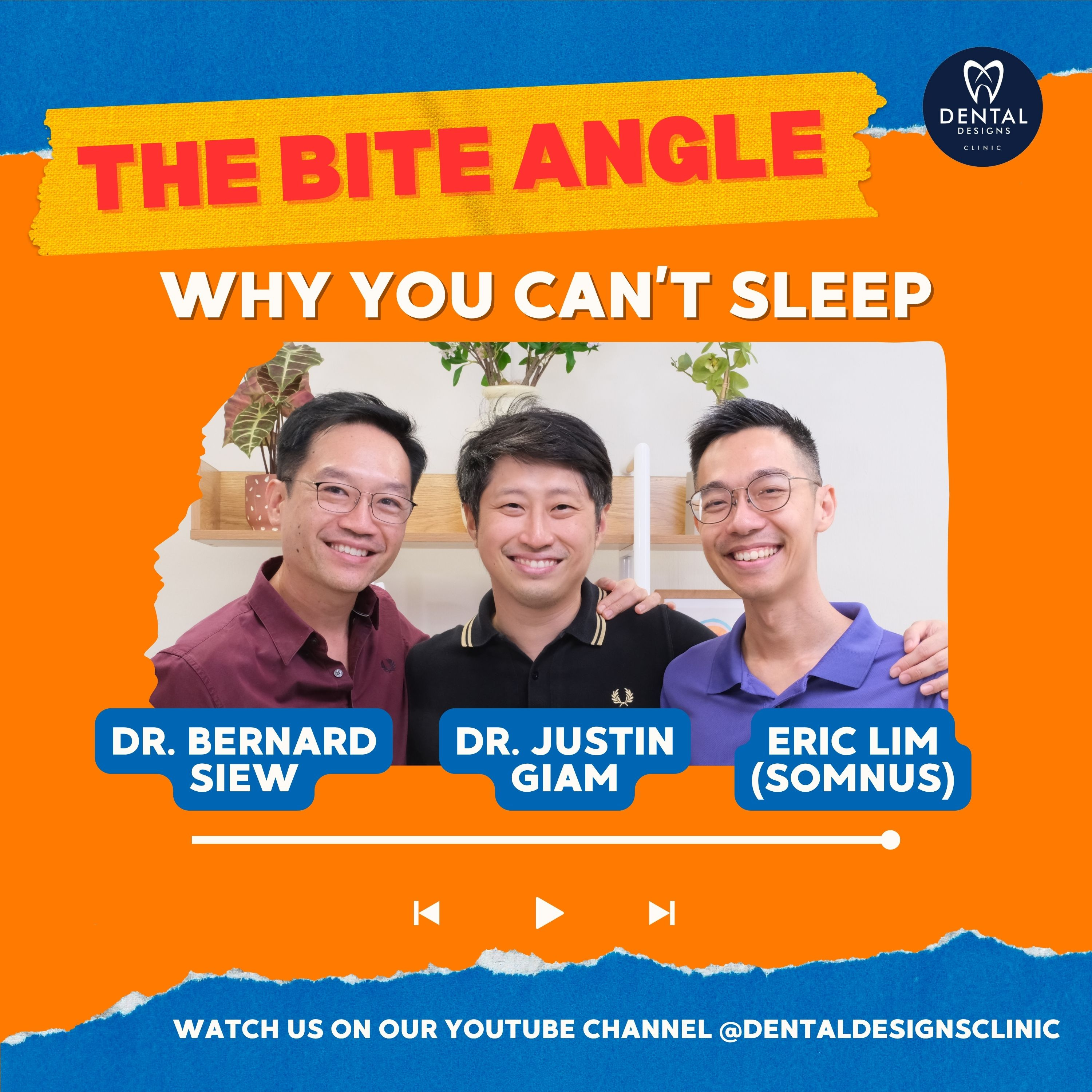About The Video
This episode of The Bite Angle Podcast brings together dentistry and sleep wellness in a relatable and thoughtful discussion. Eric Lim is a Certified Mindfulness-Based Stress Reduction Teacher in Singapore. In this episode, he shares how many people struggle with falling or staying asleep, especially when stress builds up. He explains what insomnia really is, how it affects daily life, and how it can be treated using gentle, evidence-based methods like mindfulness and simple lifestyle changes.
Our dentists Dr Justin and Dr Bernard also share how sleep problems often show up in the mouth like teeth grinding or worn-down enamel. They discuss how dentists can help patients spot early signs of sleep trouble and why looking at health as a whole (not just teeth) really matters. The conversation is full of personal stories and helpful tips that anyone can try. Eric outlines mindfulness‑based strategies that reduce bedtime anxiety, highlighting flexible rather than rigid sleep routines. He also describes Somnus partnerships with workplaces and a hotel sleep‑retreat programme, then reflects on his personal journey as a caregiver which inspired his focus on sleep wellbeing.
Many people today struggle with sleep, especially when their minds stay busy even after the lights go off. This conversation highlights how common that is and how it’s not just about bedtime routines, but also how we deal with stress during the day. Eric Lim, founder of Somnus Sleep Wellness, encourages us to stop chasing perfect sleep and instead focus on creating a calm, safe space for rest. He shares that being too strict about routines can sometimes add more pressure. For patients, it’s helpful to know that sleep affects more than just energy. It connects with mood, work, and even dental health. If you’re feeling tired, restless or anxious, small steps like being kinder to yourself, learning to notice what your body is telling you, and asking for help can go a long way in improving how you feel and function.
The dialogue illustrates how modern lifestyles encourage productivity yet often neglect restorative rest. Eric notes that many professionals lie awake with racing thoughts, creating a cycle where striving for perfect sleep keeps it further out of reach. His emphasis on awareness and non‑striving reframes sleep as a natural outcome of daytime choices rather than a nightly test to pass. Adopting simple mindfulness exercises, balanced routines and sensible use of technology can help students, workers and healthcare providers lower arousal before bed and wake feeling more capable of meeting daily demands.



.png)
-1.png)
.png)
.png)